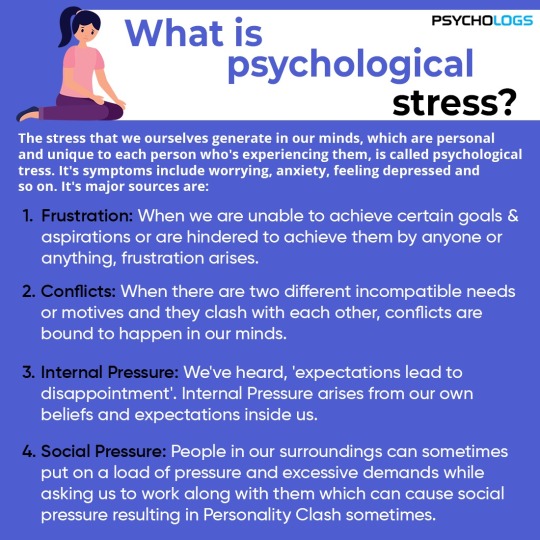Don't wanna be here? Send us removal request.
Text
Attachment Disorders

If you or a loved one suffers from one of the following Attachment Disorders, you may wonder how you can identify these behaviors. The four main attachment styles are secure, insecure-avoidant, disorganized, and ambivalent. The first two are genetically predisposed, and infants with consistently sensitive parents tend to be securely attached. Ambivalent resistant attachments are more common among children of inconsistently sensitive parents. However, there is some overlap among these different styles. Clearview Counseling Center has several therapist who can help with challenges related to attachment.
Anxious attachment style
In addition to having a disordered sense of self, people with anxious attachment styles may have been raised by chaotic, emotionally unavailable parents. These parents may have an inconsistent attachment style themselves, and this might make it harder for a child to feel secure in a relationship. Anxious attachment is also linked to difficulties in coping with stress and change. While the exact cause of this disorder is unknown, genetics is likely to play a part.
Children with a disordered attachment style develop this pattern during their early childhood. It is a symptom of inconsistent or misattuned parenting, which shuts out the child's awareness of their primary needs. It is a condition that may persist into adulthood. A child with a disordered attachment style is likely to develop a low sense of self and low self-esteem, making it difficult to form secure relationships later on in life.
Disorganized attachment style

Some people have difficulty healing from their Disorganized Attachment Style. While the attachment style of a child is a permanent factor in their life, some people learn to work with it through therapy. Psychotherapists use attachment theory to help people heal their disorganized attachment style. They may also use a specific type of therapy called emotionally focused therapy. This therapy will help a person who struggles with Disorganized Attachment Style to learn to work with it and develop a more secure relationship.
A child with a disorganized attachment style does not form feelings of security toward their parents as a child. As a result, this child will constantly stay close to their parents and will exhibit negative behaviors such as clingy, demanding, or jealousy. The consequences of a Disorganized Attachment Style include later in life when the child is an adult who feels jealous and clingy. This is because the Disorganized Attachment Style is a result of a lack of security in the early years.
Reactive attachment disorder
Reactive attachment disorder is a childhood developmental disability characterized by an aversion to physical contact and affection. They often express their anger directly, through tantrums, or by hiding it through socially acceptable behaviors. The symptoms of reactive attachment disorder are often overlooked by providers who don't know the child's history. Because of this, treating RAD may involve specialized treatment. Pediatricians and child psychologists should assess children with reactive attachment disorder.
Reactive attachment disorder may be caused by an event that isn't harmful to the child, such as the death of a family member. In such a case, the child is likely to be unable to comprehend what happened and may begin to distrust caregivers. Treatment may include the entire family, which may involve a combination of therapies and education. While the child and caregiver may not be able to fully overcome the disorder immediately, it can help them develop trust and bonding.
Disinhibited social engagement disorder
Children with disinhibited social engagement disorder (DSED) do not show normal reticence toward strangers. Instead, they become overly familiar with unfamiliar adults and will spend time alone or with strangers, regardless of safety or age. Although the exact cause of disinhibited social engagement disorder is unclear, it is thought to be related to childhood neglect. However, Mental Health Services may not be the same for all children.
While some of the symptoms of RAD are the same, disinhibited social engagement disorder is a separate diagnosis. The DSM includes a separate diagnosis for persistent disinhibited social engagement disorder, and it is considered severe if symptoms last for more than 12 months. The symptoms of disinhibited social engagement disorder in attachment disorders are similar to those of reactive attachment disorder (RAD). These children have difficulty forming emotional attachments and are afraid to interact with others.
How can Clearview Counseling Center Help?
Clearview Counseling Center has several therapists trained on different modalities to assist individuals, couples, and families impacted by different challenges. Working with a therapist helps clients learn new coping skills to better manage current stressors or triggers, which enhances their quality of life. If you need help, give us a call at (915) 200-4002 or visit our website. We know that finding a therapist can be a time-consuming process; that is why we have simplified it. From our website, you can schedule an appointment with ease; you do not even have call us. It only takes 2-3 minutes to schedule an appointment. Just click on the request appointment link. You can also call us if that is more convenient for you. We look forward to empowering you to live the life that you deserve!
Location 1
10921 Pellicano Dr.
Suite 122
El Paso, TX 79935
(915) 200-4002
Location 2
5625 Woodrow Bean Transmountain
Suite 106
El Paso, TX 79924
(915) 200-4002
0 notes
Text
What Does Psychological stress - Wikipedia Do?

How to Reduce Negative Effects of Stress and Improve Vitality Through Nutrition - Firstbeat

How To Lessen The Effects Of Stress On Your Health? – Upper Hand Chiropractic
Managing Stress - Current Students - University of St Andrews Things To Know Before You Buy
Feeling determined and inspired. A more powerful and more nimble body. How to Have More Positive Tension in Your Life You likely already consist of favorable tension in your life, however if you're seeking to add more eustress in your life, here are some concepts: Press yourself at work. Take on brand-new jobs, ask your manager what you can do to get more included.
You do not desire to exaggerate it - so beware if you start feeling too stressed at work. Press your body. Choose up a type of workout if you don't currently have one. Running and lifting weights are great to present physical eustress into your life. In addition, you'll be able to track physical and psychological health improvements.

If you discover yourself with lots of leisure time, try finding out a brand-new skill that induces a stress response. Even simple tasks can create endless chances for exercising your brain. Read. Discover something new or encountered concepts that challenge the method you think and see the world. While stress is a normal part of our life, you can constantly look for ways to include more favorable tension in your life.
Stress. All of us deal with it each day. But how do Key Reference react to everyday tension? For some people, life's stressors trigger them to end up being irritable, short-fused, or unable to focus on tasks. Others have interrupted sleep (trouble going to sleep or waking early in the early morning with racing thoughts). Then there are those who respond by eating unhealthy food-- and a lot of it! (Keep in mind - desserts is stressed out spelled backward!) Fortunately: No matter how hectic your schedule, it is possible to manage tension and keep it from destroying your life.
0 notes
Text
The Best Guide To Work-related stress - Better Health Channel
From Psychological Stress to the Emotions: A History of Things To Know Before You Buy
Daily inconveniences are the most regularly taking place kind of stressor in many grownups. The high frequency of inconveniences causes this stress factor to have the most physiological impact on a person. Carolyn Aldwin, Ph. D., performed a study at the Oregon State University that took a look at the viewed intensity of everyday inconveniences on an individual's mortality.

Psychological stress affects vision, here's how - Health News – India TV
One's understanding of their day-to-day stressors can have a modulating result on the physiological effect of daily stress factors. There are This Site of disputes that can cause tension. The approach-approach dispute, takes place when an individual is choosing in between 2 similarly appealing alternatives, i. e. whether to go see a motion picture or to go see a show.

Psychological Stress, Inflammation, and Coronary Heart Disease - Semantic Scholar
The approach-avoidance conflict, happens when an individual is required to choose whether or not to take part in something that has both attractive and unappealing characteristics such as whether or not to participate in an expensive college (meaning securing loans now, however also implying a quality education and work after graduation).

The impact of psychological stress on mast cells - Annals of Allergy, Asthma & Immunology
Ambient stress factors [modify] As their name indicates, these are global (rather than specific) low-grade stressors that belong of the background environment. They are defined as stressors that are "persistent, adversely valued, non-urgent, physically noticeable, and intractable to the efforts of people to change them". Common examples of ambient stressors are pollution, noise, crowding, and traffic.
The 8-Minute Rule for From Psychological Stress to the Emotions: A History of
They are therefore low on what Stokols called "perceptual salience". [] Organisational stressors [modify] Research studies performed in military and combat fields show that some of the most powerful stress factors can be due to personal organisational problems in the unit or on the house front. Tension due to bad organisational practices is typically connected to "Hazardous Management", both in business and in governmental organisations.
One such scale is the Holmes and Rahe Tension Scale, also referred to as the Social Readjustment Score Scale, or SRRS. Established by psychiatrists Thomas Holmes and Richard Rahe in 1967, the scale lists 43 difficult occasions. To compute one's score, build up the variety of "life change systems" if an event took place in the past year.
0 notes